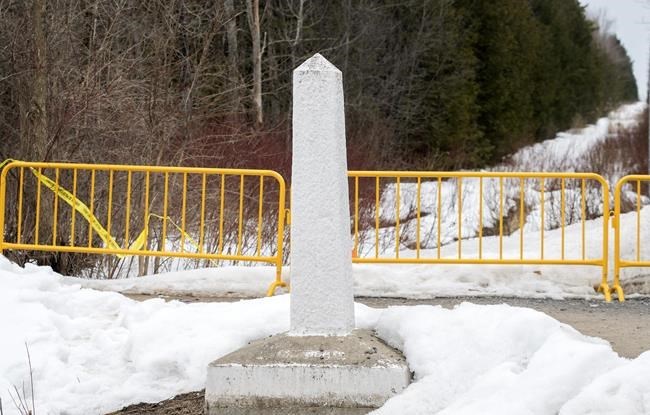OTTAWA — Prime Minister Justin Trudeau is reiterating the importance of an orderly immigration system as police investigate the deaths of eight migrants, including two toddlers, in the Mohawk territory of Akwesasne last week.
Last month, Canada negotiated a deal with the United States to turn away asylum seekers at unofficial border crossings like Roxham Road, closing a long-standing loophole in the Safe Third Country Agreement.
The deal means people will be turned away from the border no matter where they try to cross. The aim is for people to make their asylum claim in the first country they land in, whether it be Canada or the United States.
Migrant advocates warned the new rules would push people to take even greater risks in their efforts to cross the border, like using smugglers and moving to even more remote crossings.
A week later, the bodies of eight people were pulled from the St. Lawrence River after they tried to make it into the U.S. from Canada by boat.
The prime minister called the deaths a tragedy, but said Canada needs to maintain public confidence in the immigration system.
"When people take risks to cross our borders in an irregular fashion or if they pay criminals to get them across the border, this isn't a system we can have confidence in," Trudeau said in French at a press conference in Val-d’Or, Que.
Canada is prepared to welcome more immigrants than ever, he said, "but we're going to make sure that it's done in the right ways, appropriately."
The government's immigration plan says between 410,000 and 505,000 people will become permanent residents this year, which would be the highest number in recent history.
But since COVID-19 border restrictions lifted in 2021, the number of asylum claims has significantly surpassed pre-pandemic levels. Cities and provinces, particularly Quebec, have said the number of families claiming asylum have put pressure on local services.
Despite the recent clampdown at the border, the federal government set aside $1 billion for temporary shelter and health-care coverage for asylum seekers.
NDP immigration critic Jenny Kwan called on the government to suspend the Safe Third Country Agreement Monday, saying it was negotiated in secret and without consultation.
"I do fear that people will die," said Kwan at a press conference at the irregular border crossing near Emerson, Man.
She was joined by Seidu Mohammed, a bisexual man from Ghana, whose asylum claim was rejected in America. He spent a year in immigration detention before he crossed into Canada through an irregular border crossing.
If he didn't, he fears he would have been deported to Ghana where sexual acts between consenting people of the same gender is against the law and people who identify as LGBTQ face discrimination and violence.
Mohammed said he was terrified when he heard about the new policy.
"It's going to put a lot of immigrants and refugees in danger, and they're going to lose their lives from this," he said.
Immigration Minister Sean Fraser called the deaths of the migrants in Akwesasne horrific, and said they have caused him to think about changes.
"I don't have an announcement on a policy change today, but I can reassure you that I'm thinking very deeply about what shifts we ought to be making in Canada," he said, reflecting specifically on the fact that the two children who died had Canadian passports.
The children were one and two years old.
Fraser said the government is looking at putting money toward some of the root causes that push people to make perilous journeys through irregular border crossings in the first place, but repeated the prime minister's message about the importance of an orderly system.
"We want to do what we can to promote opportunities for people to come through regular pathways so they know that they're going to be able to arrive in Canada safely, whether that's through our refugee programs, whether that's through our economic programs to be reunited with their families," Fraser said at a press conference in Calgary.
This report by The Canadian Press was first published April 3, 2023.
— With files from Bill Graveland in Calgary
Laura Osman, The Canadian Press




